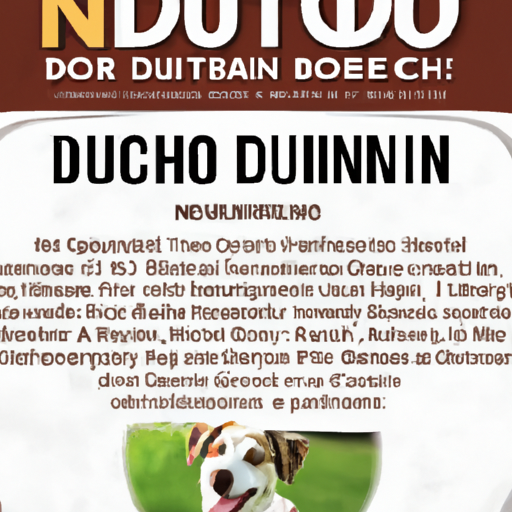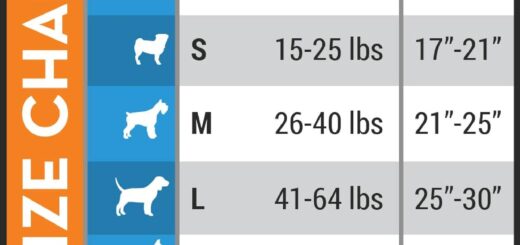Keeping Your Canine Friend Healthy: Dog Nutrition Basics
In “Keeping Your Canine Friend Healthy: Dog Nutrition Basics,” you will discover the key principles of maintaining a healthy and balanced diet for your beloved dog. With an increasing number of pet owners recognizing the significance of proper nutrition in their furry friends’ overall well-being, understanding the basics of dog nutrition has become more important than ever. This article will provide you with valuable insights and practical tips to ensure that your canine companion receives the essential nutrients they need to live a long, happy, and healthy life.

This image is property of images.pexels.com.
The Importance of Proper Nutrition for Dogs
Proper nutrition is essential for maintaining the health and well-being of your canine companion. Just like humans, dogs require a balanced diet to ensure they get all the necessary nutrients for growth, development, and a strong immune system. A nutritious diet can also help prevent certain diseases and conditions, keeping your dog happy and thriving for years to come.
Understanding the Nutritional Needs of Dogs
To provide your dog with the right nutrition, it’s crucial to understand their specific dietary requirements. Dogs need a well-balanced diet that includes proteins, carbohydrates, fats, vitamins, minerals, and water. Each of these nutrients plays a unique role in maintaining your dog’s overall health and functioning.
Common Nutritional Problems in Dogs
Unfortunately, dogs can experience various nutritional problems if not fed a proper diet. These can include malnutrition, obesity, food allergies, and gastrointestinal issues. It is important to be aware of these problems and take proactive steps to prevent and address them.
Effects of Poor Nutrition on Dogs
Poor nutrition can have serious consequences on a dog’s overall health. Short-term effects can include low energy levels, poor coat quality, and a weakened immune system. In the long term, inadequate nutrition can lead to a higher risk of chronic diseases, such as diabetes, heart disease, and joint problems.
Essential Nutrients for Dogs
To provide your dog with a well-rounded diet, it’s important to understand the different essential nutrients they need.
Proteins
Proteins are the building blocks of your dog’s body. They are essential for building and repairing tissues, as well as for the production of enzymes, hormones, and antibodies. Good sources of protein for dogs include meat, fish, eggs, and certain plant-based sources like legumes.
Carbohydrates
Carbohydrates provide dogs with a readily available source of energy. They also aid in digestion and provide dietary fiber. Healthy sources of carbohydrates for dogs include grains like rice and oats, as well as fruits and vegetables.
Fats
Fats play a vital role in your dog’s diet, providing them with a concentrated source of energy. They also aid in nutrient absorption and support healthy skin and coat. Sources of healthy fats for dogs include fish oil, poultry fat, and certain plant oils like flaxseed oil.
Vitamins
Vitamins are essential for various bodily functions in dogs. They are involved in energy metabolism, immune system functioning, and the maintenance of healthy bones and tissues. Dogs need a balanced mix of essential vitamins, such as vitamin A, B vitamins, vitamin C, vitamin D, and vitamin E.
Minerals
Minerals are necessary for maintaining healthy bones and teeth, proper nerve and muscle function, and the production of hormones and enzymes. Important minerals for dogs include calcium, phosphorus, potassium, magnesium, iron, and zinc.
Water
Water is an often overlooked but vital nutrient for dogs. It is involved in almost every bodily function and is crucial for maintaining hydration, regulating body temperature, aiding digestion, and eliminating waste products. Fresh, clean water should always be available to your dog.

This image is property of images.pexels.com.
Determining the Right Diet for Your Dog
Each dog is unique, and their nutritional needs can vary based on factors such as breed, age, size, and activity level. Here are some factors to consider when determining the right diet for your dog.
Consulting with a Veterinarian
Consulting with a veterinarian is crucial when determining the right diet for your dog. They can assess your dog’s specific needs and make recommendations based on their health and lifestyle. A veterinarian can provide valuable guidance on portion sizes, food choices, and any special dietary considerations.
Considerations for Different Dog Breeds
Different dog breeds can have specific nutritional needs and sensitivities. Large breeds, for example, may require diets that support healthy joint development, while small breeds may benefit from smaller kibble sizes or specialized dental health formulas. It’s important to research your dog’s specific breed and consult with your veterinarian to determine any breed-specific dietary considerations.
Life Stage Requirements
A dog’s nutritional needs can change throughout different stages of life. Puppies, for instance, require diets that support their growth and development, while senior dogs may need diets that support joint health and weight management. It’s important to choose a diet that is appropriate for your dog’s specific life stage and make adjustments as they age.
Special Dietary Needs
Some dogs may have special dietary needs due to medical conditions or allergies. If your dog has any known allergies or health issues, it’s important to choose a diet that accommodates these needs. Your veterinarian can provide guidance on selecting appropriate food options or even recommend a prescription diet if necessary.
Commercial Dog Food vs. Homemade Meals
When it comes to feeding your dog, you have two main options: commercial dog food or homemade meals. Each option has its advantages and drawbacks.
Advantages of Commercial Dog Food
Commercial dog food is convenient and formulated to meet the specific nutritional needs of dogs. It often undergoes rigorous testing to ensure its safety and meets certain nutritional standards. Commercial dog food comes in a variety of options, including dry kibble, wet canned food, and specialized formulas for different life stages and health conditions.
Drawbacks of Commercial Dog Food
While commercial dog food can be a convenient option, it does have some drawbacks. Some commercial dog foods may contain lower-quality ingredients or fillers that provide less nutritional value. Additionally, certain dogs may have specific dietary sensitivities or allergies that require a specialized diet, which may not be readily available in commercial dog food options.
Benefits of Homemade Dog Meals
Preparing homemade dog meals gives you full control over the ingredients and allows you to tailor the diet to your dog’s specific needs and preferences. Homemade meals can be especially beneficial for dogs with allergies or sensitivities, as you can carefully select and monitor the ingredients. It also allows for variety and can be a way to bond with your dog through meal preparation.
Challenges of Preparing Homemade Dog Meals
Preparing homemade dog meals can be time-consuming and require additional planning and research to ensure a balanced diet. It’s important to ensure you are providing all the necessary nutrients and meeting your dog’s specific dietary requirements. Additionally, homemade diets may require supplementation to ensure adequate vitamin and mineral intake.

This image is property of images.pexels.com.
Reading Dog Food Labels
When choosing a commercial dog food, it’s important to read and understand the information provided on the food labels. This can help you make informed decisions about the quality and suitability of the food for your dog.
Understanding Ingredient Lists
The ingredient list on a dog food label provides important information about the quality of the food. Ingredients are listed in descending order by weight, with the first few ingredients being the most significant. Look for high-quality protein sources, whole grains, and natural ingredients. Avoid dog foods that list fillers, by-products, or artificial additives high in the ingredient list.
Crucial Information on Guaranteed Analysis
The guaranteed analysis section on the dog food label provides the minimum or maximum percentages of certain nutrients in the food. This includes protein, fat, fiber, and moisture content. Pay attention to the guaranteed analysis to ensure the food meets your dog’s specific nutritional needs.
Checking for AAFCO Approval
The Association of American Feed Control Officials (AAFCO) sets standards for pet food and provides guidelines for proper labeling. Look for the AAFCO statement on the dog food label to ensure the food meets the minimum nutritional requirements for dogs. This statement confirms that the food is complete and balanced for its intended life stage.
Common Dietary Issues in Dogs
Despite our best efforts, dogs can still experience various dietary issues. Here are some common problems to watch out for and address promptly.
Food Allergies and Sensitivities
Just like humans, dogs can develop allergies or sensitivities to certain foods. Common allergens for dogs include beef, chicken, dairy, wheat, and soy. If you notice signs of food allergies, such as itching, gastrointestinal upset, or skin irritations, it’s important to work with your veterinarian to identify and eliminate the problematic ingredient from your dog’s diet.
Obesity in Dogs
Obesity is a growing concern when it comes to dog health. Excess weight can lead to a range of health issues, including joint problems, diabetes, and a reduced life span. To prevent obesity, it’s important to monitor your dog’s calorie intake, provide regular exercise, and avoid overfeeding.
Gastrointestinal Issues
Dogs can also experience various gastrointestinal issues, such as diarrhea, vomiting, or constipation. These issues may be caused by food sensitivities, dietary changes, or underlying health conditions. If your dog experiences ongoing gastrointestinal problems, it’s important to consult with your veterinarian to identify and address the root cause.
Dental Problems
Dental health is essential for your dog’s overall well-being. Poor nutrition and inadequate dental care can lead to dental issues such as gum disease, tooth decay, and bad breath. Incorporating dental hygiene practices, such as regular teeth brushing and providing dental chews or toys, can help maintain good oral health for your dog.

Special Nutritional Considerations
Certain life stages and situations require specific nutritional considerations to ensure your dog’s optimal health and well-being.
Puppy Nutrition
Puppies have unique nutritional needs to support their rapid growth and development. They require a higher calorie intake and specific ratios of protein, fat, and calcium to support bone growth. It’s important to select a high-quality puppy food that is specifically formulated to meet these needs.
Senior Dog Nutrition
As dogs age, their nutritional needs change. Senior dogs often have decreased activity levels and may require fewer calories to maintain a healthy weight. Additionally, joint health becomes important, so a diet with added joint supplements or ingredients like glucosamine and chondroitin can be beneficial.
Pregnant and Lactating Dog Nutrition
Pregnant and lactating dogs have increased energy and nutrient requirements to support the growth of puppies. It’s important to provide them with a high-quality diet that is rich in vital nutrients such as calcium, omega-3 fatty acids, and folic acid. Consult with your veterinarian to determine the best diet for your pregnant or nursing dog.
Performance and Working Dogs
Performance and working dogs have higher energy needs due to their active lifestyle and physical demands. They require diets that provide the necessary fuel and nutrients to support their performance and recovery. It’s important to choose a diet specifically formulated for athletic dogs or consult with a veterinarian to develop a personalized diet plan.
Feeding Your Dog: Portion Control and Frequency
Proper portion control and feeding frequency are crucial to maintaining your dog’s weight and overall health.
Determining the Right Portion Size
The appropriate portion size for your dog depends on factors such as their size, age, activity level, and overall health. It’s important to follow the feeding guidelines provided on the dog food label as a starting point. However, individual dogs may require more or less food depending on their specific needs. Monitor your dog’s weight and adjust portion sizes accordingly to maintain a healthy body condition.
Feeding Frequency
The number of meals you should feed your dog each day can depend on their age and lifestyle. Puppies often require more frequent meals, with three to four meals per day, to accommodate their growing bodies and higher energy needs. Adult dogs can typically be fed two meals per day. However, some dogs may do well with free-feeding, while others may benefit from several smaller meals spread throughout the day.
Avoiding Overfeeding
Overfeeding can lead to weight gain and potential health problems. It’s important to avoid free-feeding and measure out appropriate portions for each meal. Treats should also be given in moderation, and their calorie content should be considered when calculating your dog’s overall daily intake. Regularly monitor your dog’s weight and adjust portion sizes as needed to maintain a healthy weight.

Supplements for Dogs
Supplements can play a role in supporting your dog’s overall health and addressing specific concerns. However, it’s important to use supplements under the guidance of a veterinarian.
Commonly Used Dog Supplements
Some commonly used dog supplements include omega-3 fatty acids (such as fish oil) for healthy skin and coat, joint supplements (like glucosamine and chondroitin) for joint health, and probiotics for digestive health. Other supplements may be used to address specific conditions or deficiencies. It’s important to discuss any potential supplements with your veterinarian to determine their safety and efficacy.
Benefits and Risks of Supplements
Supplements can offer benefits when used appropriately and under veterinary guidance. They can support overall health, promote joint health, aid in digestion, and improve coat quality. However, it’s important to note that supplements are not a substitute for a nutritious diet and can have risks if used improperly. Some supplements may interact with medications or have potential side effects. It’s crucial to consult with a veterinarian before introducing any supplements to your dog’s diet.
Consulting with a Veterinarian
Given the potential benefits and risks of supplements, it’s essential to consult with a veterinarian before introducing them into your dog’s diet. A veterinarian can assess your dog’s specific needs, evaluate any existing health conditions, and recommend appropriate supplements, if necessary. They can also provide guidance on dosage, duration, and potential interactions with other medications or treatments.
Tips for Ensuring a Healthy and Happy Canine
In addition to providing a nutritious diet, there are several other factors to consider to ensure your dog’s overall health and happiness.
Balancing a Nutritious Diet
Maintaining a balanced and nutritious diet is at the core of keeping your canine friend healthy. Be sure to provide a variety of high-quality food options that meet your dog’s specific dietary needs. Consider rotation feeding, which involves periodically changing the protein source or brand of dog food to provide a wider range of nutrients.
Offering Variety in Food Choices
Dogs, like humans, can get bored with eating the same food every day. Offer variety in your dog’s diet by incorporating different flavors, textures, and forms of food. You can try mixing wet and dry food, adding certain toppings or toppers, or even giving occasional homemade treats as long as they are safe and nutritionally balanced.
Monitoring Weight and Body Condition
Weight management is crucial for maintaining your dog’s overall health. Regularly monitor your dog’s weight and body condition to ensure they are at a healthy weight range. If you notice changes in your dog’s weight or body condition, consult with your veterinarian to discuss any necessary adjustments to their diet or exercise routine.
Regular Exercise and Hydration
Exercise and hydration go hand in hand with proper nutrition. Regular physical activity is vital for maintaining your dog’s overall health, weight management, and mental stimulation. Ensure your dog has access to fresh, clean water at all times to stay properly hydrated, especially during exercise or in hot weather.
Regular Veterinary Check-ups
Regular veterinary check-ups are essential for monitoring your dog’s overall health and addressing any potential concerns. Your veterinarian can assess your dog’s weight, body condition, and overall well-being. They can also provide guidance on diet and nutrition, answer any questions or concerns, and check for any potential health issues before they become major problems.
In conclusion, proper nutrition plays a crucial role in maintaining the health and well-being of your beloved dog. Understanding their nutritional needs, selecting the right diet, and monitoring their weight and overall health are essential for ensuring a long and happy life for your furry companion. By providing a balanced and nutritious diet, offering variety in food choices, and following the guidance of a veterinarian, you can ensure that your dog thrives and enjoys a healthy and fulfilling life by your side.









